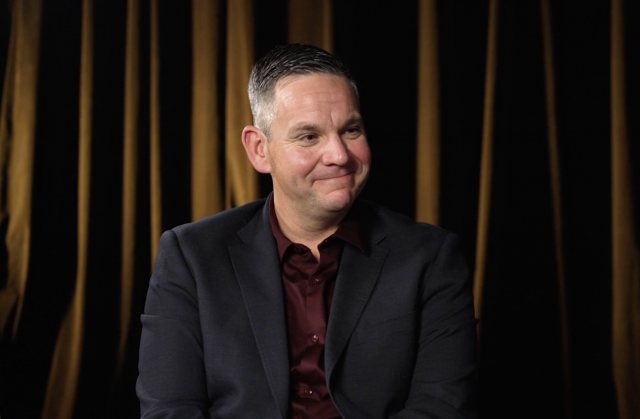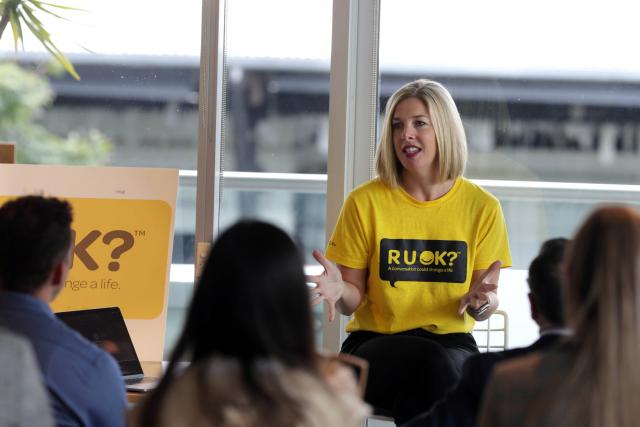R U OK? research has underscored the impact a genuine conversation can have on someone who is struggling with life.
The research found more than four in five people who engaged in a meaningful conversation felt better about managing their situation having talked it through and felt supported, heard, and safe during the conversation.
However, the research also found that when asked if they were OK, two in five people who said they were OK actually were not OK. These respondents said important factors to encourage an honest conversation were:
• Trust: they needed to know the person they spoke to was someone they trusted, and, for many, someone they were close to.
• Authenticity: they wanted to know the person asking them genuinely wanted to hear answers.
• Environment: people would prefer to have these conversations in a relatively private space with enough time to share what they want to say.
Two months out from R U OK?Day on 14 September, R U OK? is calling on Australians to let the people they care about know ‘I’m here to hear’ every day of the year.
“You need to ask this question because you mean it. If you really care and want to hear an honest answer, be genuine with your ask, make space to listen and let the person know you’re sticking around for whatever comes next,” R U OK? chief executive officer Katherine Newton said.
“We know the positive impact an R U OK? conversation have when people know and trust each other. This usually means that trust has been built over time, they’re familiar with each other’s routines and behaviours, and they likely know what’s going on in each other’s lives. This trust, along with consideration of the where and when a conversation will take place contributes to making an R U OK? conversation truly meaningful.”
Suicide Prevention Australia’s June 2023 Community Tracker revealed two in five Australians know someone who has died by or attempted suicide in the last 12 months, a 13 per cent increase from 2021. For the fourth quarter running, cost-of-living and personal debt remained the number one issue driving distress.
“In recent years there has been a lot for Australians to deal with. Many are still feeling the impact of natural disasters and the pandemic, while the cost-of-living increases are adding more stress on those who might already be struggling to manage,” Ms Newton said.
“There is a natural tendency for us to want to move on as new events capture focus and we resume our usual routines.
“That’s why it’s important for us to recognise that the people we really care about may be feeling ongoing effects, long after something has happened to them, and to let them know we’re still here to really hear.”
R U OK? community ambassador, Anthony Gagliardi understands first-hand the importance of having an authentic conversation with someone close to you, who takes the time to take notice and really listen.
“Asking, ‘are you OK?’ in a genuine manner is so important to the outcome,” Mr Gagliardi said, who when struggling with the physical impact of an ongoing chronic back injury, didn’t realise the mental toll it was having on him until a friend spotted the signs that he might need support.
“I didn’t really know that I was going to answer no (I wasn’t OK) at that point in time, but he sensed I was struggling, that something wasn’t quite right and asked me if I was OK,” Mr Gagliardi said. “Due to our relationship, there was a high level of trust and respect.”
“It is about just being there, being able to listen, you’re not trying to fix the problem, that’s not the role,” he said.
“It was that non-judgemental, really active listening, just letting me vent, letting me let go of everything that I was thinking and worried about.”
Mr Gagliardi’s experience reinforces the need to show genuine interest and concern when you ask someone, ‘are you OK?’ to encourage a meaningful conversation.
“Positive experiences revolve around feeling heard, validated, and receiving empathy,” Ms Newton said.
“By making the time and space for an R U OK? conversation and listening with an open mind, we can help the people in our world feel supported and, if needed, encourage them to access professional support long before they are in crisis.”
Let the people in your world know you’re here, to really hear, because a conversation could change a life.
You can find free resources at ruok.org.au to help you know when and how to ask, ‘Are you OK?’ in your workplace, school and community and plan your R U OK?Day activities.
For support at any time of day or night, Lifeline provides free and confidential crisis support. Call 13 11 14, text 0477 13 11 14 or chat online at lifeline.org.au.
13YARN is a free 24/7 service offering crisis support for Aboriginal and Torres Strait Islander people. Call 13YARN (13 92 76).









